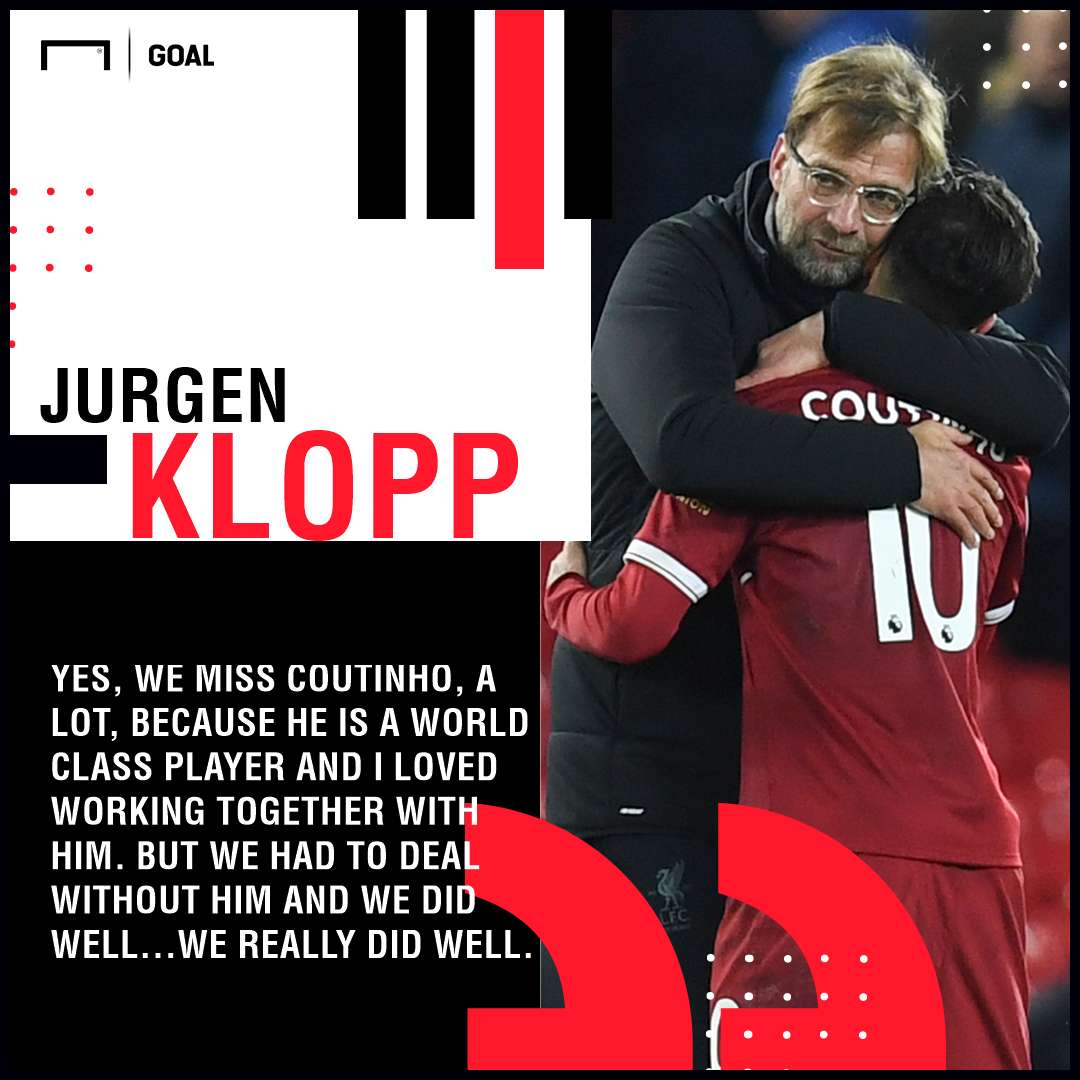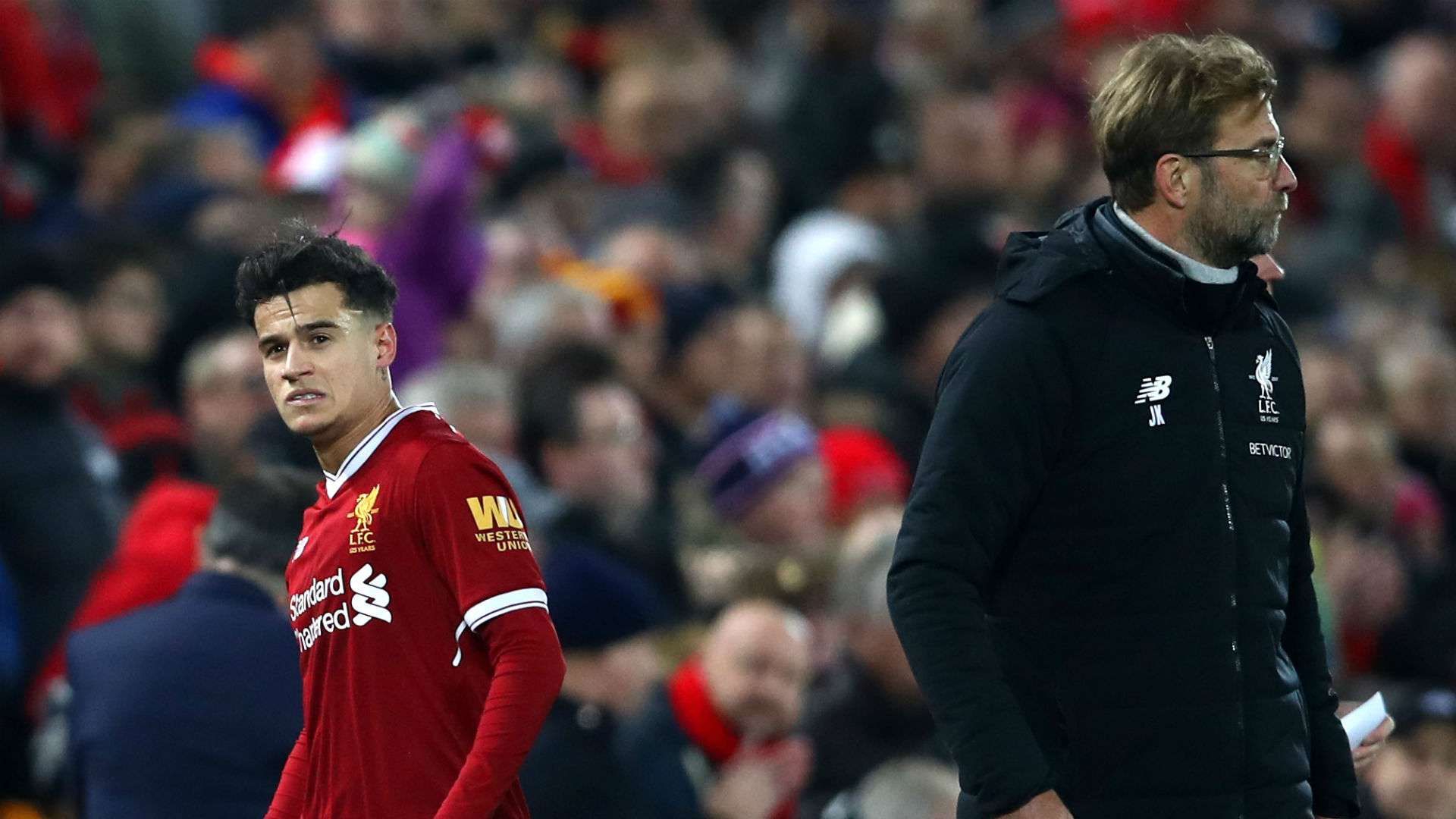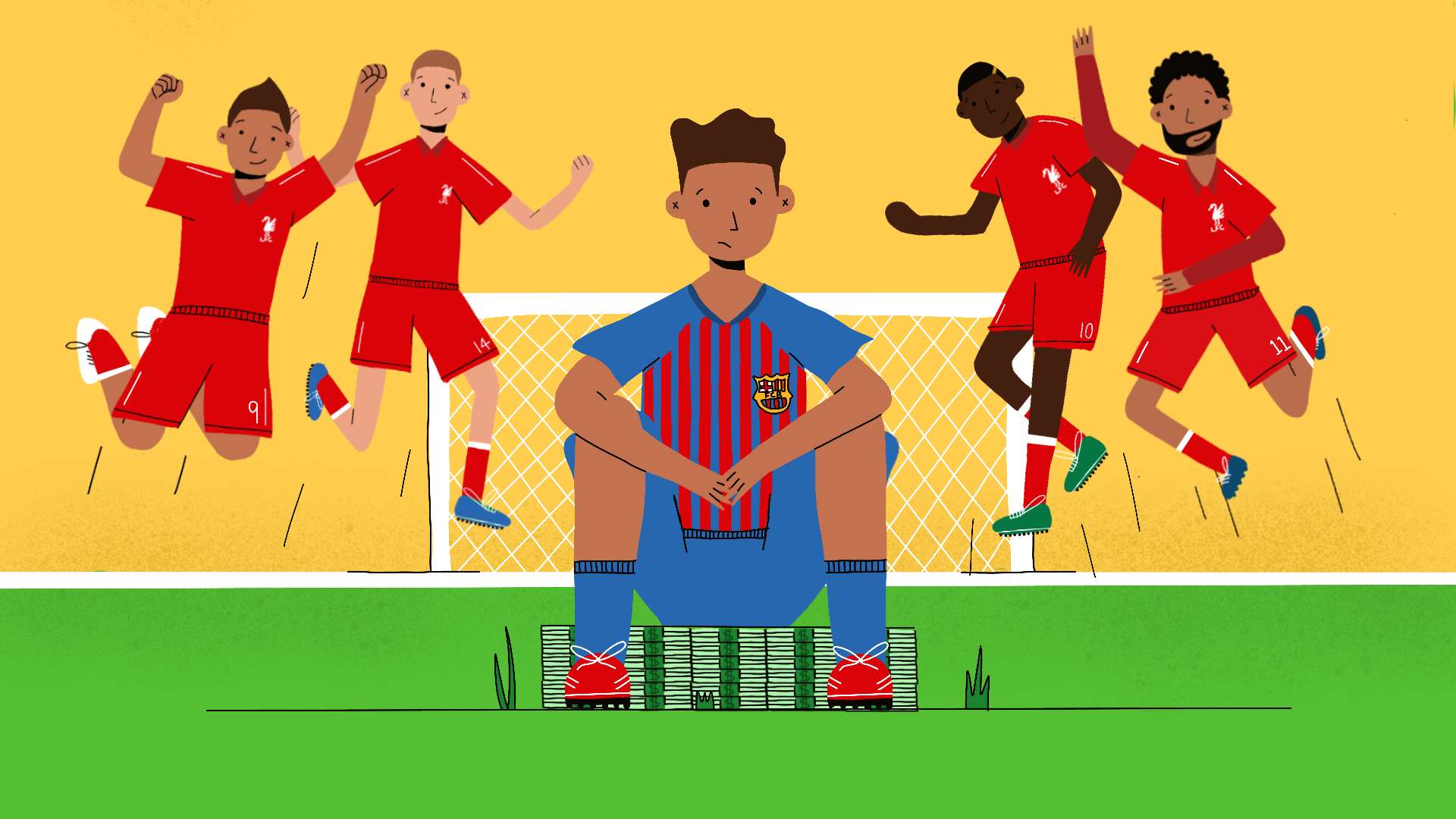Jurgen Klopp may have known nothing about 'The Ewing Theory' before selling Philippe Coutinho to Barcelona in early 2018 but, nearly 18 months on from the playmaker's Anfield departure, the Liverpool manager has inadvertently proven just how accurate it can be.
A popular idea in American sports, The Ewing Theory basically argues that a sports team can actually perform much better without their star player.
Former NBA player Patrick Ewing was the unfortunate inspiration behind the idea, with the New York Knicks side of the 1990s often enjoying more success on the court when the 11-time NBA all-star was absent.
In the world of football, the Reds might just now consider Coutinho to be their Ewing, given Klopp's men have gone on to bigger and better things since selling the Brazilian to Barcelona in January 2018.
With consecutive Champions League final appearances either side of a club-record Premier League points haul, Liverpool have flourished without their once talismanic attacking midfielder – so, how have they done it?
First and foremost, the Reds did what every club has to in this day and age and that's pinch every possible penny out of interested clubs for their players.
In this instance, that saw Liverpool extract a whopping €145 million (£125m/$160m) out of the Catalans, thus making Coutinho the third most expensive player of all time.
As the Anfield faithful mourned the loss of another star player to Camp Nou, Klopp and his staff were left with sly grins on their faces as they contemplated how one player's astronomical sale could help transform their entire side.

Having already sealed the big-money arrival of Virgil van Dijk just days before Coutinho's by-then inevitable exit, Liverpool's transfer kitty was very quickly replenished and the next few months allowed Klopp to assess just how he'd go about closing what ended up being a 25-point gap between his side and Manchester City.
After seeing Loris Karius' horror performance in the Reds' Champions League final loss to Real Madrid, a new number one unsurprisingly became the priority.
The German coach moved quickly to sign Roma goalkeeper Alisson, with Coutinho's sale making the keeper's record-breaking €72.5m (£64/$81m) fee look reasonable.
Klopp then brought in Monaco's versatile midfielder Fabinho and Xherdan Shaqiri from relegated Stoke City at a knockdown price to add real depth to a squad that would enable the Reds to push City right to the wire in an epic Premier League title race, while at the same time reaching another Champions League final.
While Coutinho's departure allowed Liverpool to splash the cash in the transfer market, it also allowed three players already at the club to form what's become the deadliest trio in world football.
No longer forced to figure out how to incorporate Coutinho into his team, Klopp simply allowed Mohamed Salah, Roberto Firmino and Sadio Mane to do their thing, namely combining brilliantly to score goals – and lots of them.
Though all three had impressed while Coutinho was still in Liverpool's squad, it wasn't until he was removed from the equation that they were able to establish a truly unstoppable triumvirate.
Indeed, whenever a side has an undisputed star to rely on, they can invariably become too reliant on them, something Klopp noted shortly after selling Coutinho.
"It was kind of a solution for us to give him the ball," the former Borussia Dortmund coach acknowledged. "We don’t have to look for that now. It can make us more unpredictable."
 Getty Images
Getty Images
It also made Liverpool more effective, and more successful, as their results over the past 18 months underline.
Coutinho had previously been considered by many as integral to Klopp's line-up. This, after all was a player who had scored 41 goals and contributed 37 assists in 152 Premier League appearances for Liverpool.
But the resurgent Reds have since proven that no player is untouchable.
The Ewing Theory, or Coutinho Theory as Klopp could well call it now, is one a number of Premier League clubs could now embrace in the coming months.
From Chelsea's looming loss of Eden Hazard to continued rumours surrounding Paul Pogba's future at Manchester United, many top sides could find themselves seduced by the idea that they could shine much brighter without their star players.
As well as generating massive amounts of money that could be shrewdly invested in other areas of the squad, their departures could provide more balance for teams that have struggled for consistency over the past few seasons.
After all, as the Coutinho case has shown, Klopp didn't weaken his team by selling his best player; he made it stronger.
